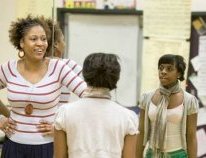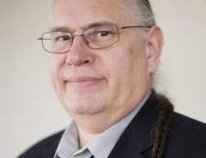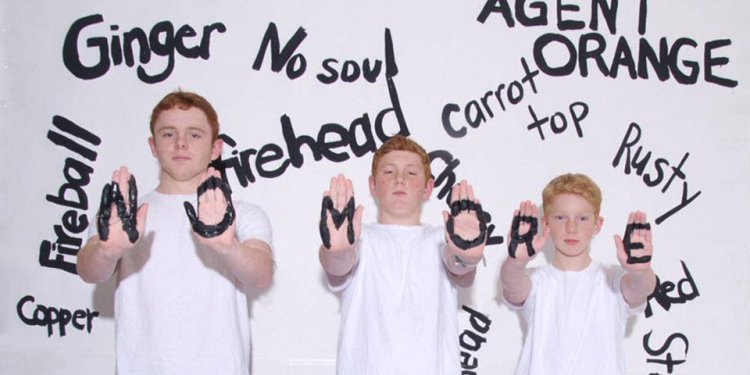
Good deeds for Kids
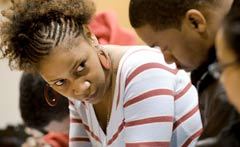
Terese Brazzle
Brazzle, a Self Enhancement Inc. youth services coordinator at Jefferson High School, gives back to the organization that gave her so much. She wants those students, no matter what their background or circumstances, to believe they're strong, smart and capable.You can go home again: SEI - which strives to give Portland's inner-city youth the personal and academic opportunities they otherwise might miss - was founded in 1981, the year Terese Brazzle was born. When she became old enough to take advantage of its programs, Brazzle jumped at the chance. Ever since, she has considered the North Portland nonprofit a home away from home. After graduating from Virginia's Norfolk State University, Brazzle returned to Portland and to SEI, this time to give back.
Photo by Torsten KjellstrandSetting a high bar: With a caseload of 26 or 27 teenagers, Brazzle works as a mentor and tutor, tracking students' attendance, behavior and grades, listening to their worries and guiding them through the hurdles of adolescence. Just as SEI nudged her, she encourages students to see the value of discipline, be curious, learn to focus and prepare for college. She wants those students, no matter what their background or circumstances, to believe they're strong, smart and capable - "to be positive, contributing citizens at the end of the day."
Options, always: SEI likes to emphasize that life is rich with options. Brazzle, supremely confident and stylish at 27, embraces that philosophy. She and her twin sister, Shara, operate a small production company, where they like to record neo-soul, blues, jazz and a little hip-hop. Brazzle's dream: to start her own children's theater.
Photo by Torsten Kjellstrand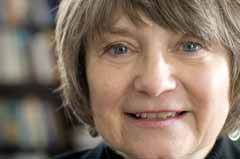 Kristine E. Nelson
Kristine E. Nelson
The dean of Portland State University's School of Social Work says preserving families is Job One. After time in the eye-opening trenches of social work, she determined that more education and research seemed the best way for her to aid the neediest, most chronically neglected children and their families.
Knowledge is power: A lifetime of work designed to preserve families and keep children safe from abuse and neglect may all have started, Kristine E. Nelson says, when she was a California junior high school student trying to talk a classmate out of sliding toward delinquency. As an adult, after time in the eye-opening trenches of social work, she determined that more education and research seemed the best way for her to aid the neediest, most chronically neglected children and their families. With master's and doctorate degrees under her belt, she went to work, arriving at PSU 15 years ago.
A new way of thinking: In the old days, child-welfare experts figured the best answer for neglected children was to remove them from their families and place them in foster care. Nelson's research contributed to an ideological shift. Today, social workers make preserving families - helping with job skills, housing, health care, parenting skills and more - a priority because, in the end, it's often what's best for children.
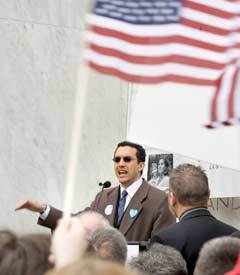 Challenges loom:The shortage of drug-treatment programs for parents, the faltering economy, big caseloads and inadequate budgets for social workers all spell grim news for children with tenuous family lives. Thinking about all of it, knowing the need, this school year PSU started a new bachelor's program in social work. The school recruits students from poor and minority communities who, like 65-year-old Nelson, may be inclined to think first and think hard about how to help children thrive.
Challenges loom:The shortage of drug-treatment programs for parents, the faltering economy, big caseloads and inadequate budgets for social workers all spell grim news for children with tenuous family lives. Thinking about all of it, knowing the need, this school year PSU started a new bachelor's program in social work. The school recruits students from poor and minority communities who, like 65-year-old Nelson, may be inclined to think first and think hard about how to help children thrive.
Jonah M. Edelman
A plea from his mom - and a march on Washington - inspired Edelman to start Stand for Children, which pushes grass-roots advocacy for children. Now's not the time to give up on reform. Now's the time to focus even more energetically on making schools work better. - Jonah M. EdelmanMother knows best: Jonah M. Edelman needed encouragement before defending his dissertation at Oxford University, so he did what any son might: He dialed his mother, Marian Wright Edelman, founder of the Children's Defense Fund. Instead of a pep talk, "I got this impassioned plea to come back and help Mom organize this big march on Washington." When an estimated 300, 000 marchers showed up on June 1, 1996, for what some call the biggest rally for children's issues in U.S. history, it sparked Edelman's passion. Two years later, he moved to Oregon and started Stand for Children, which pushes grass-roots advocacy for children's education, health and safety. Based in Portland, it has a dozen chapters statewide; it also works in Washington, Massachusetts and Tennessee.
Cause No. 1: "I've come to see improving public education, " he says, "as the civil rights issue of the 21st century."
Making progress: Stand for Children works across Oregon to help pass school bonds and levies. It developed a mentoring program for new teachers and principals. In February, it organized a Salem rally of more than 5, 000 students and parents who implored legislators to fund schools for the full academic year. The group also recruited dozens of Salem-area dentists to provide free care for children who are in pain and uninsured, a program it plans to expand.
